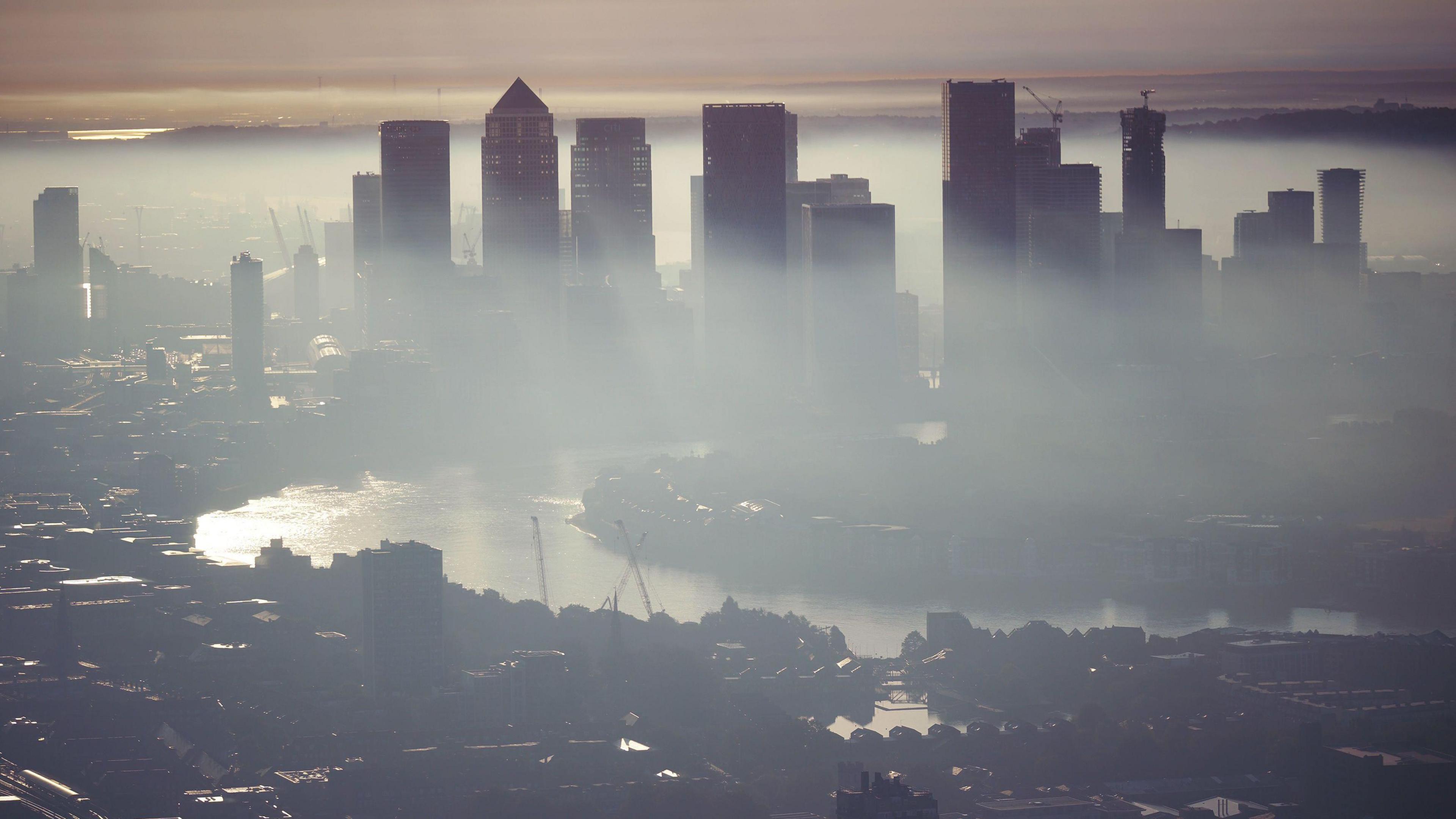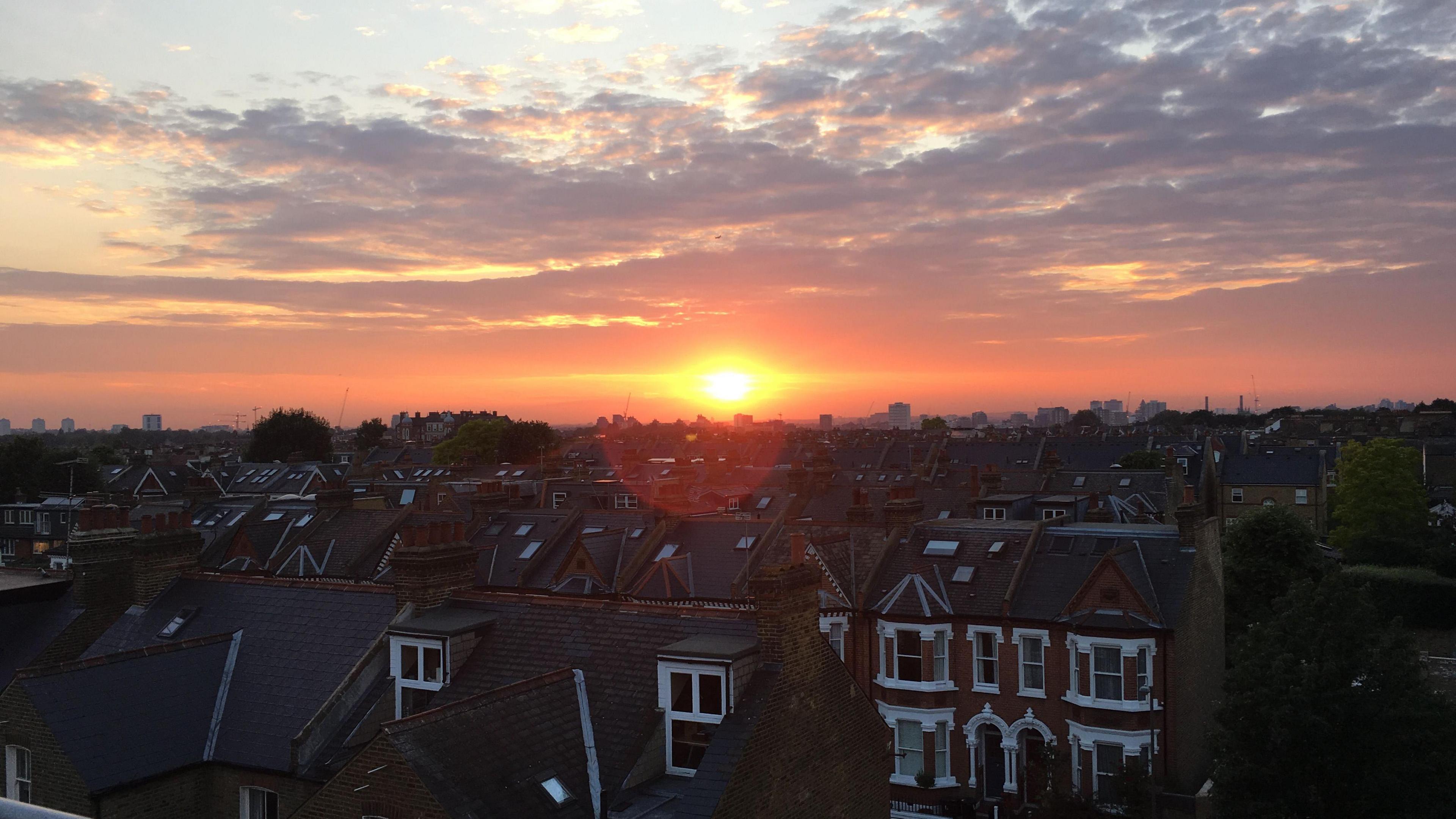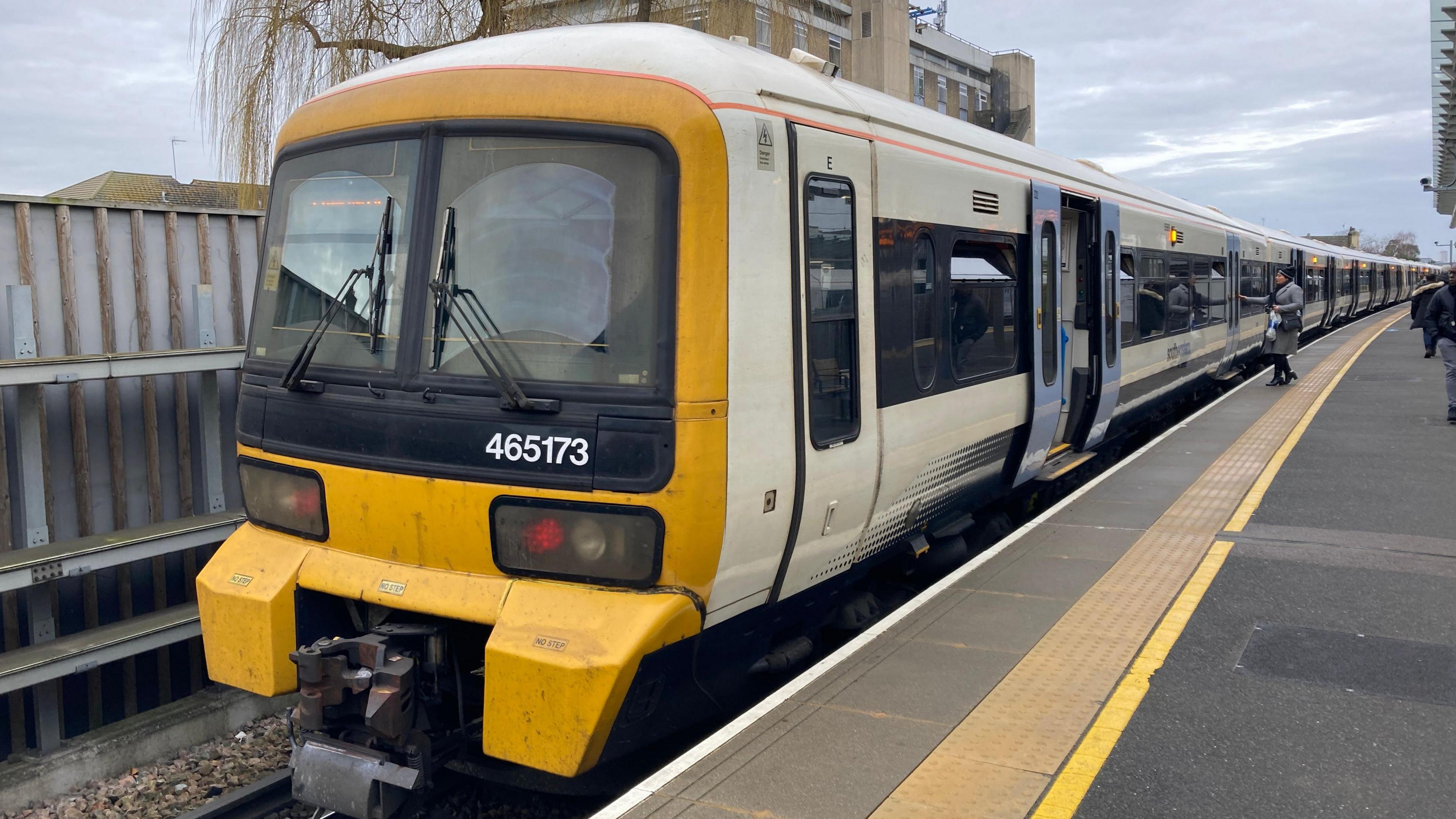What do the political parties care about in London?

London is rarely mentioned by any of the parties
- Published
The manifestos are out: the promises can be seen in black and white. What are the Conservative, Labour, Liberal Democrat and Green parties offering for London and its nine million inhabitants?
In the Tory manifesto, there are 776 words dedicated to the section on “investing in infrastructure”. One of them is London.
It is coupled with the word Euston in relation to the High Speed 2 (HS2) rail link that Rishi Sunak scaled back last year.
About £6.5bn, which was going to be spent on redeveloping the area around Euston, is now being redirected to the rest of the country.
'Benefit more people'
Many will argue that it is logical for the Tories’ programme for another term in government to appear to pivot away from the capital.
The recent mayoral election has reinforced Labour’s dominance in London, some polling has indicated the capital’s current crop of 21 Tory MPs could be reduced to single figures, and the bigger electoral strategy requires a focus on those seats in the North and Midlands they took from Labour in 2019.
“We will spend £36bn of HS2 savings on transport projects that will benefit more people, in more places, more quickly," the manifesto says.
“Every penny saved in the North or Midlands will be spent there. Savings from our new plan for Euston, which will see 10,000 new homes built, have freed up £6.5bn for transport across the rest of the country.”
As well as the focus on line upgrades, electrification and rebuilt stations, there is a reminder of a fund of nearly £5bn to tend to the priorities of smaller cities, towns and rural areas.

London remains in the grip of a housing crisis
There is a prominent pledge to appeal to the motorist and “back drivers by stopping road-pricing, reversing the London mayor’s Ulez expansion and applying local referendums to new 20mph zones and low-traffic neighbourhoods.”
This would risk undermining the capital’s devolution deal and could impede growth, said the organisation BusinessLdn, although the group welcomed reforms to boost the City’s global competitiveness.
There are signs that a re-elected Tory government would intervene more in the devolved area of planning, with swipes at the Labour mayor Sadiq Khan.
Housing density in inner London needs to be raised to levels like Paris and Barcelona, says the manifesto, "forcing the mayor to plan for more homes on brownfield sites, like underused industrial land".
Where are the key election battlegrounds in London?
- Published23 May 2024
A simple guide to the 4 July general election
- Published4 July 2024
There is no mention of London in Labour’s section on “economic infrastructure”, while improved connectivity across the north of England is promised.
So what does Labour’s programme signal for London and its mayoralty?
With the housing need so acute in the capital, Labour’s pledge to reform planning could have an impact.
'More powers to mayors'
Labour says it will give more powers to mayors and combined authorities outside London, but there are no additional powers mooted for the capital - which already has the most - to be extended elsewhere.
There is a commitment to allow mayors a “role in designing” new rail services under a system brought back into public ownership.
This would give mayors the power to create a “unified and integrated” transport system in their areas, but there is no explicit commitment to allow London’s mayor and Transport for London to take over franchises such as Southeastern.

The two main parties have no plans to allow TfL to take over Southeastern services
It is not common for manifestos to zoom in too closely on individual regions although the debate on “levelling up” has added a new dimension to politics.
However, policies are inevitably viewed to have different effects in different places and so there will be plenty of arguments about how London could do relatively.
Some will say, for instance, that the Conservatives’ 2p reduction in employees' national insurance contributions will create more winners in London where average earnings are higher.
There is an assumption that Labour’s pledge of more teachers and medical appointments could help the capital - certainly parts of it - where there is most need.
The Liberal Democrats’ promises to clean up sewage-soaked waterways and create a new watchdog have been focused on the difficulties of Thames Water.
And their vow to invest more in social care and health could resonate.
The Greens are pledging to spend the most, including billions more on social care, and to build 150,000 social rent homes.
But the money needed - from measures like putting up national insurance on incomes over £50,000 and taxing wealth over £10m - will be raised disproportionately in London.
Listen to the best of BBC Radio London on Sounds and follow BBC London on Facebook, external, X, external and Instagram, external. Send your story ideas to hello.bbclondon@bbc.co.uk, external